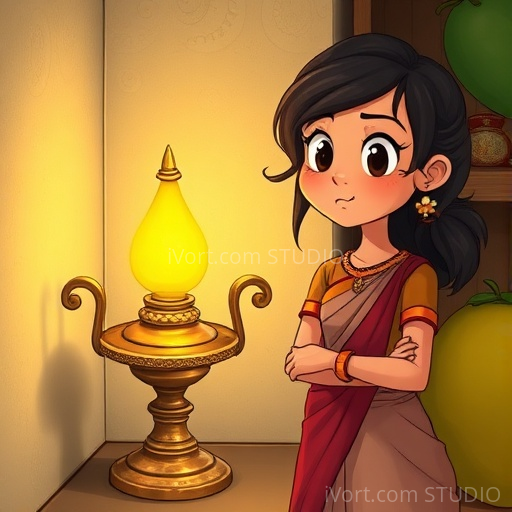In a small, colorful village in India, there was a shiny brass lamp named Lali. Lali was placed in the corner of the village square, where children loved to gather around her during festivals. But one day, Lali whispered a secret to the children—she claimed she could grant wishes. Curious and excited, the children started making wishes, but strange things began to happen, and they wondered if Lali was telling the truth.
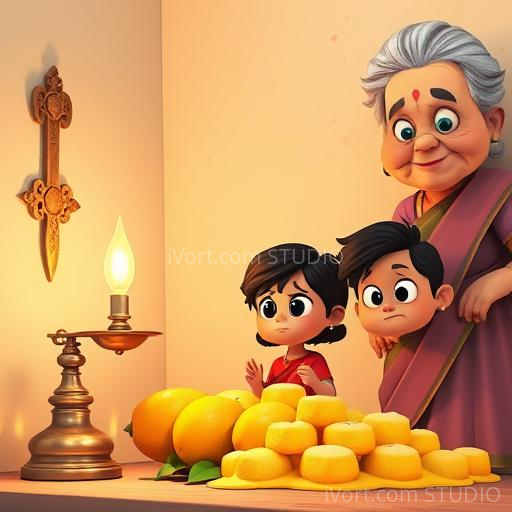
Little Riya wished for a giant mango, dreaming of the sweetest fruit she had ever tasted. Suddenly, a huge mango appeared right beside her, bigger than her head! The children cheered, but soon they realized that the mango was too heavy to carry, and it blocked the path of the village market. Riya felt a pang of guilt—she had wished without thinking.
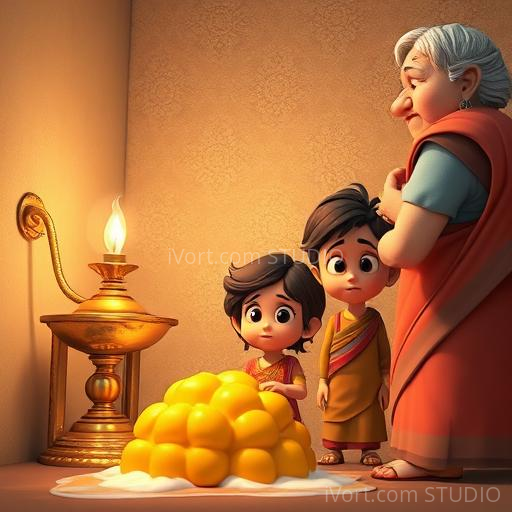
Next, Arjun wished for a mountain of sweets. Instantly, a towering pile of ladoos, jalebis, and barfis appeared! The children jumped with joy, but the sweets soon began to melt in the hot sun, creating a sticky mess. Arjun looked sad—his wish had caused trouble instead of happiness. The children learned that wishes can be tricky if not thought through.
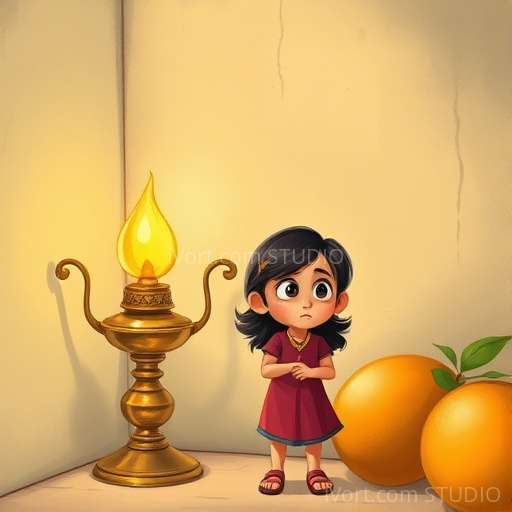
That evening, wise old Granny Mira explained to the children that Lali was just a lamp, and it was their own wishes and hearts that truly mattered. She told them that honesty, kindness, and thinking carefully were the real magic. The children understood that wishes should come from love and good intentions, not just greed or fun. From then on, they made wishes that helped others and made their village a happier place.
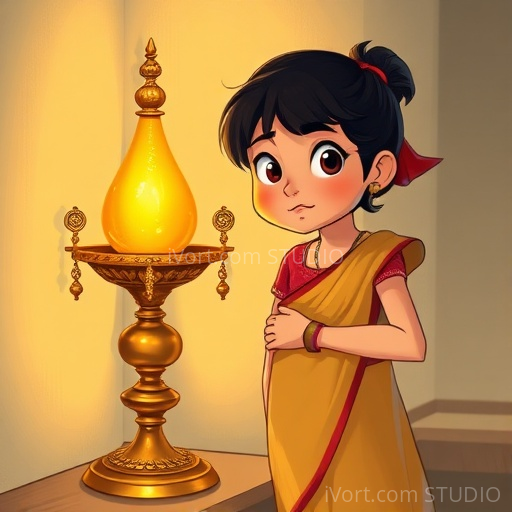
From that day on, the children made wishes to help each other—like wishing for rain during a dry season or a new school for everyone. They discovered that the real magic was in caring, sharing, and being honest. Lali, the lamp, no longer lied, because the children’s good hearts had made their village a truly magical place. And every festival, they lit a small lamp, not to wish, but to remember that kindness is the greatest magic of all.
